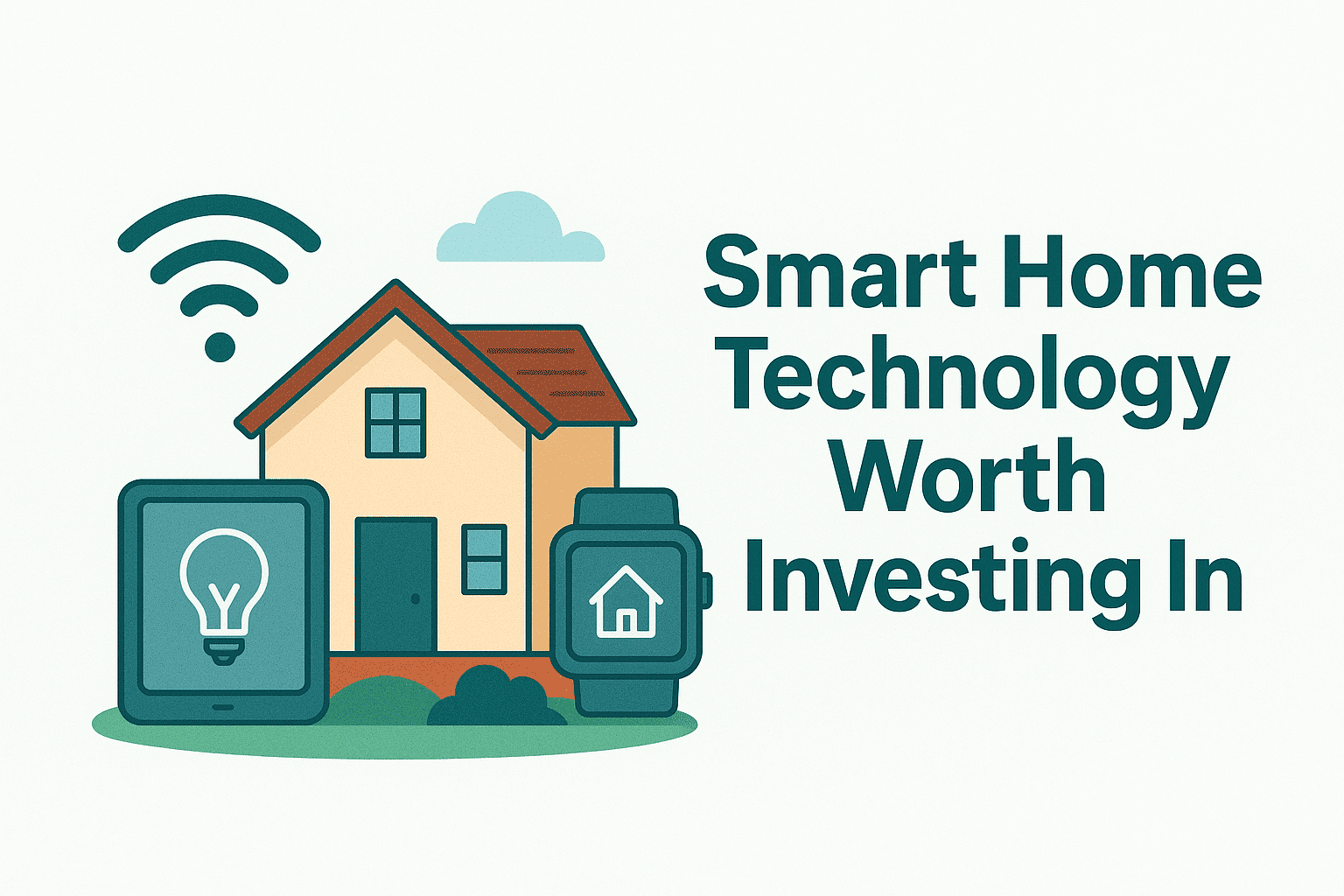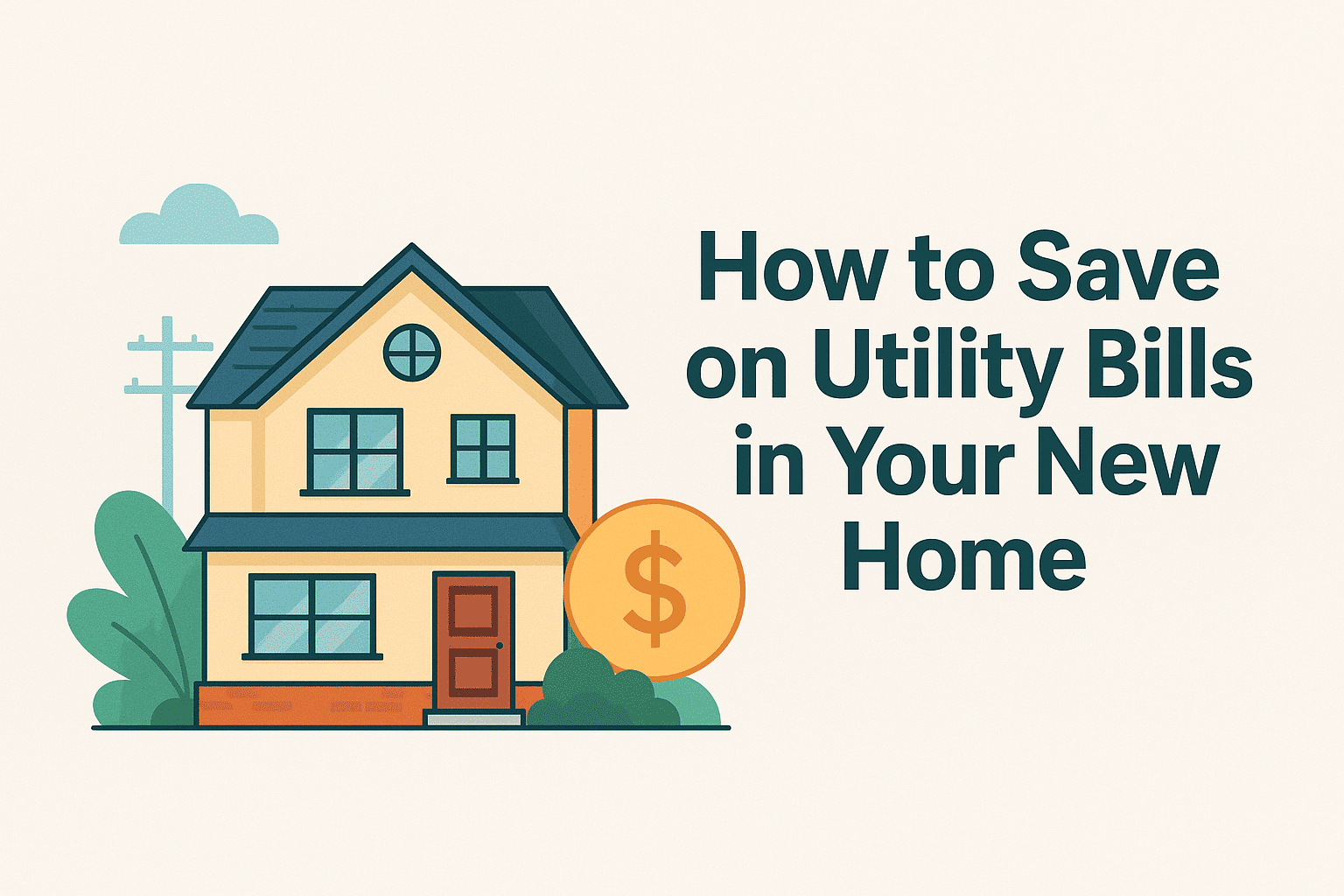The smart home market is booming, with new devices and systems being released constantly. While the convenience and "cool factor" of these technologies are appealing, it's important to consider which investments will truly enhance your home's functionality, efficiency, and value. In this article, we'll explore the smart home technologies that offer the best return on investment in terms of energy savings, security, convenience, and home value appreciation.
Smart Thermostats: The Gateway to Energy Efficiency
Smart thermostats are often considered the entry point to smart home technology, and for good reason. They offer one of the best returns on investment through energy savings and enhanced comfort.
Top Benefits:
- Energy Savings: Smart thermostats can reduce heating and cooling costs by 10-15% by optimizing temperature settings based on your habits and preferences.
- Learning Capabilities: Advanced models like the Nest Learning Thermostat or ecobee SmartThermostat learn your schedule and preferences over time, automatically adjusting to save energy while maintaining comfort.
- Remote Control: Adjust your home's temperature from anywhere using your smartphone, ensuring comfort upon arrival and energy savings while away.
- Integration: Most smart thermostats work with other smart home systems like Amazon Alexa, Google Home, and Apple HomeKit.
- Energy Reports: Detailed usage reports help you understand your consumption patterns and identify additional saving opportunities.
With costs typically ranging from $130-$250 and potential annual savings of $50-$150, smart thermostats often pay for themselves within 1-2 years.
Smart Lighting: Efficiency Meets Convenience
Smart lighting systems combine energy efficiency with unprecedented control over your home's ambiance and security.
Top Benefits:
- Energy Efficiency: LED smart bulbs use 75% less energy than traditional incandescent bulbs and last up to 25 times longer.
- Automated Controls: Set schedules, use motion sensors, or create rules (like lights turning on at sunset) to ensure lights are only on when needed.
- Remote Access: Turn lights on/off from anywhere, eliminating the "did I leave the lights on?" worry.
- Enhanced Security: Simulate occupancy while you're away by having lights turn on and off at natural times.
- Customization: Many smart bulbs offer dimming capabilities and color changes to suit different activities and moods.
While individual smart bulbs ($15-$50) are more expensive than standard LED bulbs, the additional control features and integration capabilities make them worthwhile for many homeowners. Start with high-traffic areas for the best return on investment.
Smart Security Systems: Protection and Peace of Mind
Modern smart security systems offer comprehensive protection with flexibility and control that traditional systems can't match.
Top Components Worth Investing In:
Smart Doorbell Cameras ($100-$250)
These devices allow you to see, hear, and speak to visitors from anywhere using your smartphone. They also record activity at your door, providing valuable security footage and package delivery confirmation.
Smart Security Cameras ($50-$200 per camera)
Indoor and outdoor security cameras with features like motion detection, night vision, and cloud storage provide real-time monitoring and evidence in case of incidents. Many systems send alerts when they detect unusual activity.
Smart Door Locks ($100-$300)
These locks allow keyless entry via code, smartphone, or fingerprint, and can be remotely locked/unlocked. You can also provide temporary access codes for guests or service providers and receive notifications when the door is unlocked.
Smart Alarm Systems ($200-$500 plus optional monitoring)
Modern systems include door/window sensors, motion detectors, and integration with other smart devices. Many offer professional monitoring options without the long-term contracts traditional security companies require.
Beyond the obvious security benefits, these systems can reduce home insurance premiums by 5-20% and significantly increase your home's appeal to potential buyers if you decide to sell.
Smart Water Management: Preventing Costly Damage
Water damage is one of the most common and expensive home insurance claims. Smart water management systems can detect leaks early and prevent catastrophic damage.
Key Components:
- Smart Water Leak Detectors ($30-$80): Place these sensors near potential leak sources (water heaters, washing machines, dishwashers, sinks) to receive alerts when moisture is detected.
- Smart Water Shutoff Valves ($200-$500): These devices can automatically shut off your home's water supply when leaks are detected, preventing extensive damage.
- Smart Sprinkler Controllers ($100-$300): For homes with irrigation systems, these controllers adjust watering schedules based on weather forecasts and soil conditions, reducing water waste by 30-50%.
Considering that the average water damage insurance claim exceeds $10,000, these devices offer exceptional value and peace of mind.
Smart Appliances: Convenience with Caveats
Smart appliances like refrigerators, ovens, and washing machines offer innovative features but come with higher price tags and varying levels of practical benefit.
Best Smart Appliance Investments:
Smart Plugs and Power Strips ($15-$60)
These affordable devices can make any appliance "smart" by allowing remote control, scheduling, and energy monitoring. They're particularly useful for managing devices that consume standby power or for creating automated routines.
Robot Vacuums ($200-$1,000)
While not the cheapest smart home device, robot vacuums offer significant time savings by automating a regular household chore. Advanced models can map your home, be scheduled for specific rooms, and empty themselves.
Smart Smoke and Carbon Monoxide Detectors ($100-$150)
These devices send alerts to your phone when alarms are triggered, potentially saving lives when you're away from home. Many can also tell you which specific detector was activated, helping you respond appropriately.
At Batman Service, we can help you find internet service providers that offer the bandwidth and reliability needed for a connected smart home. Our free concierge service ensures you get the right service for your technology needs.
Smart Home Hubs and Ecosystems: Bringing It All Together
As you add more smart devices, a central hub or ecosystem becomes increasingly valuable for seamless integration and control.
Popular Smart Home Ecosystems:
- Amazon Alexa: Works with the widest range of third-party devices
- Google Home/Nest: Excellent voice recognition and Google service integration
- Apple HomeKit: Superior security and privacy features for Apple users
- Samsung SmartThings: Robust automation capabilities and device compatibility
When selecting smart home devices, consider compatibility with your preferred ecosystem to ensure seamless integration and simplified control.
Installation Considerations
While many smart home devices are designed for DIY installation, some require more technical expertise:
DIY-Friendly Devices:
- Smart plugs and power strips
- Battery-powered sensors and cameras
- Smart speakers and displays
- Many smart doorbells and battery-powered locks
Professional Installation Recommended:
- Smart thermostats (if you don't have a C-wire)
- Hardwired security systems
- Smart water shutoff valves
- Complex lighting systems
Factor installation costs into your budget when considering the total investment in your smart home technology.
Final Thoughts: Creating a Smart Home Strategy
Rather than impulsively purchasing the latest gadgets, develop a strategic approach to building your smart home:
- Start with high-ROI devices: Begin with technologies that offer clear benefits in energy savings, security, or convenience.
- Choose an ecosystem: Select a primary platform (Alexa, Google, Apple, etc.) and prioritize compatible devices.
- Invest incrementally: Build your smart home gradually, focusing on one area at a time.
- Consider future compatibility: Look for devices that support open standards like Matter or Thread for better long-term integration.
- Don't overlook infrastructure: Ensure your home has reliable Wi-Fi coverage and sufficient internet bandwidth to support your smart devices.
By thoughtfully selecting smart home technologies that align with your specific needs and priorities, you can create a connected home that enhances your daily life while providing tangible returns on your investment.
When setting up your new home, Batman Service can help you select the right internet service provider to support your smart home needs. Our free concierge service ensures you have the connectivity required for all your devices to function optimally.



